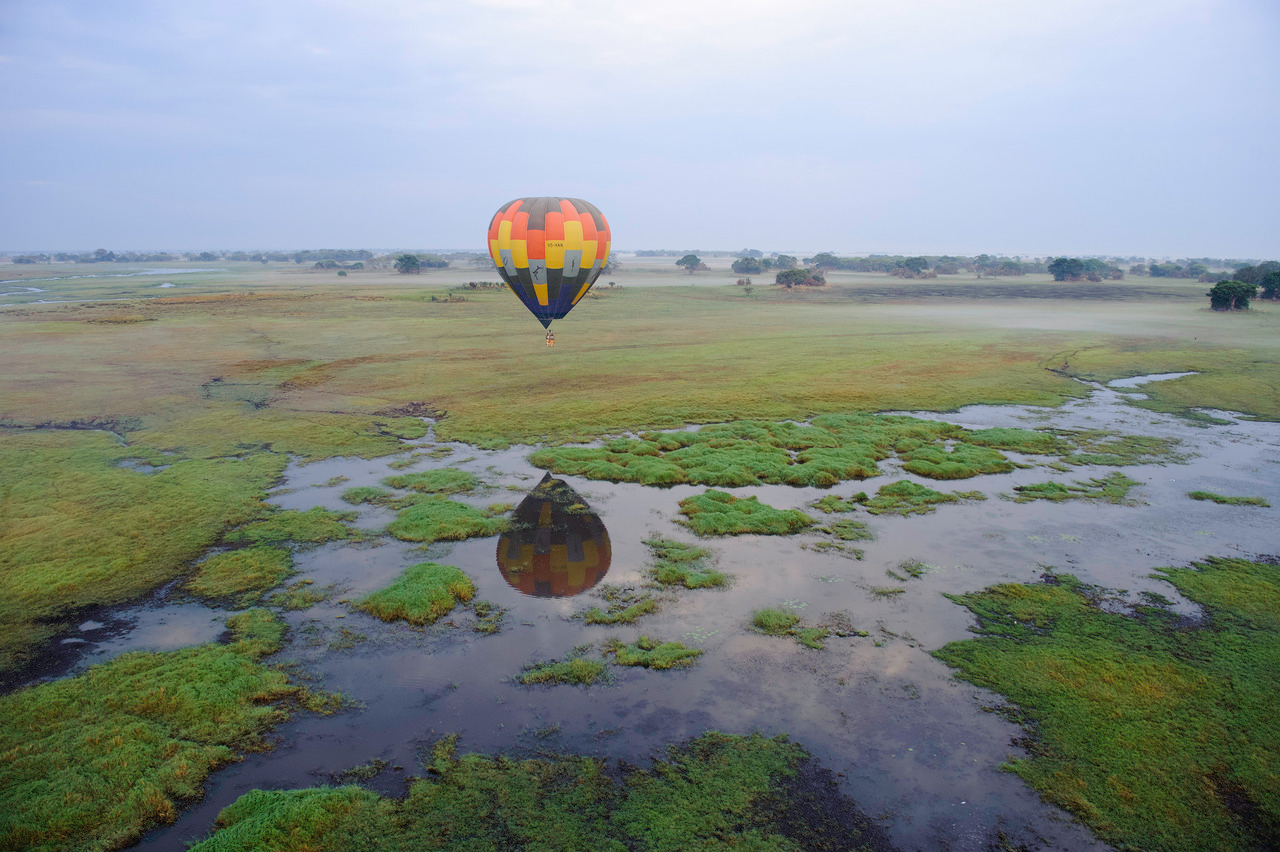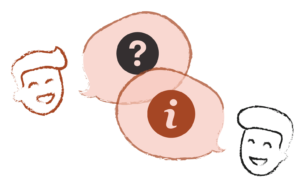Do You Have Any Questions?
Please read questions bellow and if you can not find your answer, please send us your question, we will answer you as soon as possible.
- Photographic
- Privately guided
- Private chartered
- Beach & sea
- Wellness
- Gastronomy
- Urban
- Winelands
All trips are quoted in Rands and/or United States Dollars.
Payments can be made via wire transfer or credit card payment.
All the details for wire transfers are in your provisional quotation. Please note that your bank may have extra fees for foreign transfers. Please ensure that you take care of any additional fees.
At Completely Unique Safaris, we do not take or store guest credit card information, as we use a reputable and secure third-party payment link that is PCI DSS compliant and that gets sent directly to you, so we never see your credit card.
If you would like to use your credit card, we will send you a secure credit card payment link, as we do not take guests’ credit card details for safety reasons.
We would like to please draw your attention to our credit card handling fee charged at 5% for Amex & Diners and at 2% for Visa & Mastercard.
Please let us know if you would like to use your credit card and whether it is an Amex, Diners, Visa or Mastercard? This will enable us to send you the correct link, as each type of card requires a different link.
Upon confirmation of your safari, you are required to pay a deposit in order to confirm your trip.
25% deposit, plus 100% of flight costs on confirmation
65% 90 days prior to departure
Should you make a booking within 90 days of departure, you will need to pay 100% upfront
We are a SATSA bonded company, which has stringent regulations, including certain compulsory insurance. Our membership number is 2027 and more information can be found here.
At Completely Unique Safaris, we have numerous past guests who we would be glad to share with you as references. As our guests contact us by referral, we pride ourselves on offering the very best service, discretion and quality to all our guests.
We understand that booking a trip to Africa can be daunting. Should you require any further information or if you have any questions, please do not hesitate to contact me at any time. I will continue to endeavour to make you feel comfortable with booking your safari through Completely Unique Safaris.
The nature of the safari transaction warrants that we pay the deposit as well as the balance of the trip directly to the lodges and flight companies. Therefore, we are not the custodians of guests’ funds.If you wish, we would be glad to provide you with some kind of proof from the lodges and flight companies that we have paid your funds across to them.
Additionally, at Completely Unique Safaris, we are proud to be one of the only safari outfitters take out insurance on all of our guests’ behalf that protects you in the rare case that one of our partners goes out of business or has an interruption, for example, if a lodge burns down. You can rest assured that your funds are safe.
Furthermore, as we are SATSA bonded, your pre tour deposits are guaranteed. For more information, please visit the SATSA website by clicking here.
As we receive our commission from our partner hotels, lodges and service providers, our trips do not cost you anything more than if you had to approach each of them directly yourself. With that said, we save you tremendous amounts of time and hassle, as well as add, what we believe is tremendous value to your booking process and trip itself.
We collaborate with you to create the ultimate safari experience that is unique to you, all at no additional fee to you. In fact, due to our relationships with our partners, very often we are able to save you costs and apply specials that are not generally available to the public.
At Completely Unique Safaris, we are proud to be one of the only safari outfitters to offer a price guarantee that means that we will match or better any written quote received for the same services.
Per our company terms and conditions, guests are compelled to take out certain compulsory travel insurances prior to travelling that protect them from cancellation and curtailment of their trip. This should also protect our guests from any non-refundable deposit payments should they be unable to travel at a late hour.
Even more important is guest travel medical insurance and we are here to advise you on the best options in the unlikely event that you need medical treatment while in Africa.
We also proud ourselves on being the only safari agent to have an in-house medical officer who is here to accompany guests on their travels should they wish.
A trip to Africa and especially the safari part is often a substantial sum.
At Completely Unique Safaris, we strive to tailor-make your itinerary within your budget or price range. After getting to know you and your requirements, we will do our utmost to create a trip that is unique to you. We will always endeavour to assist guests with a range of budgets.
We will also always do our best to obtain specials and create an itinerary that makes the most of logistics and lodges to ensure that we maximize time.
The best way to understand the cost of your safari is to allow us to get to know you personally.
When we speak with you, you do not need to know much or even anything about your trip. You will be able to leave it to us to suggest some unique safari options that can then be further tailored to your exact requirements.
It is never too soon to get in touch and often, it is much easier if we get involved during the formative stages of your planning.
Please speak to us if you would like to plan a trip or better understand the costs involved. We are here for you any time.
As travel to Africa is usually confirmed months prior to departure, there is always the possibility of cancellation. In this unlikely and unhappy event, we will always endeavour to assist you as best we can.
When you confirm your trip, we will send you our terms and conditions which details our cancellation policy. Fortunately (and unfortunately), the most common reasons for cancellation are covered by your travel insurance.
Like many other safari outfitters, Completely Unique Safaris also must adhere to the cancellation policies of our partner lodges, which is usually broken down into stages:
- 0 to 60 days prior to departure: 100%
- 60 to 90 days prior to departure: 70%
- 90+ days prior to departure: 25%
Please note that there are certain non-refundable items, for example flights, gorilla and chimp permits.
Travel to African countries necessitates that you have at least 6 free pages in your passport 6 months from your return date prior to expiration of your passport.
Visa requirements for each African country differ. Most countries issue visas upon arrival. Completely Unique Safaris will identify will confirms that this is included in the costing of private guided trips. For self-travellers, please ensure that you have USD 100 per port of entry per person in cash available.
Yes, of course! Safari is one of the best bonding times that you will ever share with you children and the reason that families come back to Africa again and again.
Please keep in mind that child trafficking is a worry in Africa, as it is globally. For this reason, many African countries necessitate that children under the age of 18 travel with the original copy of their birth certificate, listing the details of both parents who will be traveling with them. Should only one parent be travelling with them, please speak to us about what is required prior to travel.
At Completely Unique Safaris, safety is of paramount importance. Our partners are chosen for their quality in delivering an extremely high standard of experience and doing so safely.
Our partners’ employees are trained to the highest African and global hospitality standards.
We would never send you on a trip that we were not comfortable taking ourselves with our loved ones.
It may seem counter intuitive, but a safari is very safe if you stick to the regulations in the safety briefings.
Some things to remember are the following:
- Listen to your guide on game drive or on a game walk. It is not to be taken lightly and it is of extreme importance that all rules are adhered to.
- Do not use flash photography when it is unsafe to do so.
- Wear neutral coloured clothing.
- Don’t make a noise or any sudden movements.
- Keep all items and limbs inside the vehicle.
- Always stay seated on the vehicle.
- Do not run unless your guide specifically tells you to.
- Never leave your room at night for whatever reason.
- Never approach any animals. Most lodges are unfenced, and animals very commonly wander through the lodge grounds.
- Always stick to paths and never wander around without a purpose.
- Never leave children unattended.
- Never feed any of the animals or birds.
- Do not litter.
- Do not smoke when it is unsafe to do so, as it could cause huge wild fires.
It is very often much safer to fly than to drive in order to reach your destination.
In order to reach some of the most remote locations in Africa, it necessitates that we make use of light aircraft.
Past stats show that they are very safe. All of these companies are constantly checked by regulatory bodies to ensure that they adhere to international standards.
At Completely Unique Safaris, upon your request we provide private charter. We can arrange various aircraft that suit your requirements.
There are strict weight restrictions in place on any itinerary, which includes light aircraft transfers and are for the following reasons:
-
- The aircraft are designed with a maximum bodyweight and luggage weight allowance.
- Most of the airfields are at a fairly high elevation and located in the warm to hot tropics. Therefore, the permissible aircraft carrying capacity is reduced.
- The aircraft have physical space restrictions as referred to below.
These important luggage and weight guidelines below must please be noted for all air transfers:
Luggage, including camera equipment and hand luggage, is restricted to 20 kg (44 lb) per person travelling on seat rates, in Botswana, Namibia, South Africa, Zambia and Zimbabwe.
Only soft bags will be accepted – no wheels, frames or rigid structures can be transported as flexibility of the bag is limited and restricts physical loading into the aircraft.
The maximum dimensions of the soft bags which can be accommodated are as follows: 30 cm (12 inches) wide x 25 cm (10 inches) high and 62 cm (24 inches) long. Please keep in mind that the baggage compartments on the light aircraft are only 25 cm high (10 inches), so the pilots have the ability to manipulate the bag into the compartment.
A collapsible wheeled luggage frame/trolley (separate to the bag) is allowed, as long as basic dimensions are similar to that of the bag.
Each and every aircraft has a legal take-off and landing weight. This includes fuel, luggage and per seat passenger weight. It is not reasonable to combine passenger weights as this may affect the weight and balance of an aircraft due to unknown variables of the group of passengers on the day. Any deviations from these weight regulations could affect the take-off and landing capabilities of the aircraft.
We need to be informed in advance if guests weigh more than 100 kg (220 lb), as additional weight allowance on the aircraft must be purchased for safety and comfort. The cost for this is calculated on request according to specific region and routing.
For more information, please speak to us and we will be glad to assist you.
Most of the accommodation you will stay at when on safari has scrumptious home cooked meals and some lodges even have world renowned chefs.
Every one of our partners will do their utmost to accommodate most dietary requirements if they are notified about them beforehand.
When you confirm your safari, Completely Unique Safaris will send you a guest information form.
Once we receive your personal details, we keep them confidential and will only pass on specific, need to know information to our partners.
Please also make sure that you do not forget to include any allergies that we need to be made aware of.
No request is too small, insignificant or ‘silly’. Please let us know of anything you require, regardless of how trivial it may seem to you and we will do our utmost to ensure that you are accommodated on your trip.
At Completely Unique Safaris, we tailor your safari to your exact needs. We are in the position to ensure that every place you visit on your trip will be able to accommodate your disability.
We have planned the ultimate safari experiences for people from all walks of life and with varying requests and needs.
If you are worried that a disability may limit your ability to travel on safari, please do not hesitate to contact us to discuss the various options available to you.
At Completely Unique Safaris, we strongly believe in tipping only if you feel that you have received a great service.
It is important to keep in mind that most lodge and hotel staff rely solely on tips for their income. This income usually has to stretch far beyond just that individual. Sometimes up to 20 individuals rely on that single source of income to survive.
From your guides to your housekeeping staff, any gratuities are always so greatly appreciated.
If you feel like you would like to leave something for the service you have received, most loges will give you envelopes so that you may do so graciously.
The most common people whom you would award for great service are:
- Your guide
- Your tracker
- Housekeeping staff
- Butler
- Waiters & waitresses
- Chefs
- General staff
- Drivers
As we are not medical doctors, we recommend that all of our guests speak to a medical doctor that is well versed in African illnesses and diseases, as well as what medication and precautions to take.
If you have any questions, please do not hesitate to contact us and we will do our utmost to point you in the correct direction.
Some of the more common illnesses and diseases are found below.
Ebola
The chance of you catching Ebola while travelling in sub-Saharan Africa is almost non existent, as the current situation is very stable.
More information can be found on the World Health Organisation website that can be found by clicking here.
Malaria
People infected with malaria often experience fever, chills and flu-like illness at first.
Prevention of mosquito bites between dusk and dawn is the first line of defence against malaria. Measures to prevent mosquito bites include sleeping under long-lasting insecticidal nets and using protective clothing and insect repellents.
Depending on the malaria risk in the area to be visited, international travellers may also need to take preventive medication (chemoprophylaxis) prior to, during, and upon return from their travel. There is much information online about Malaria and its risks but if you are interested in knowing more.
More information can be found on the World Health Organisation website that can be found by clicking here.
Yellow fever
Yellow Fever is a viral infection caused by RNA viruses belonging to the Flavivirus genus. It is a zoonosis – an animal disease that can spread to humans – primarily transmitted by daytime biting Aedes Aegypti female mosquitoes, but also by mosquitoes belonging to the Haemagogus genus.
Countries that require Yellow fever certificate of vaccination:
- Kenya
- Rwanda
- Tanzania
- Uganda
- Zambia
More information can be found by clicking here.
Zika
Zika virus occurs in tropical areas with large mosquito populations, and is known to circulate in Africa, the Americas, Southern Asia and Western Pacific.
People catch Zika virus by being bitten by an infected Aedes mosquito – the same type of mosquito that spreads dengue, chikungunya and yellow fever.
Mosquitoes and their breeding sites pose a significant risk factor for Zika virus infection.
Prevention and control rely on reducing mosquitoes through source reduction (removal and modification of breeding sites) and reducing contact between mosquitoes and people.
More information can be found on the World Health Organisation website that can be found by clicking here.




